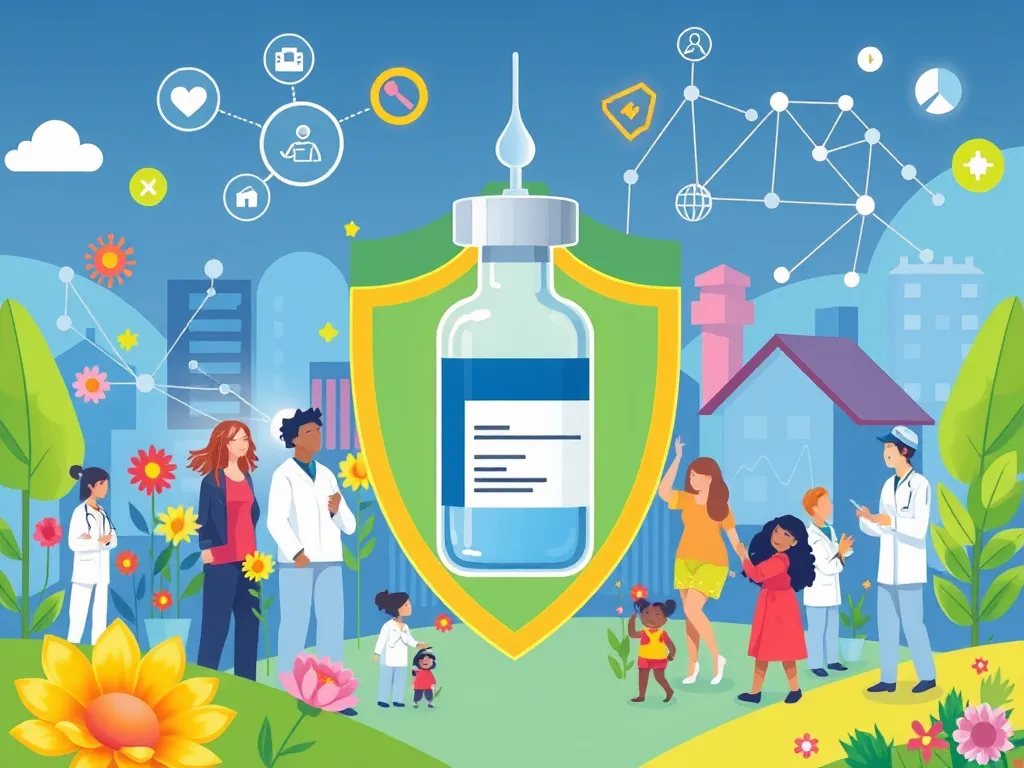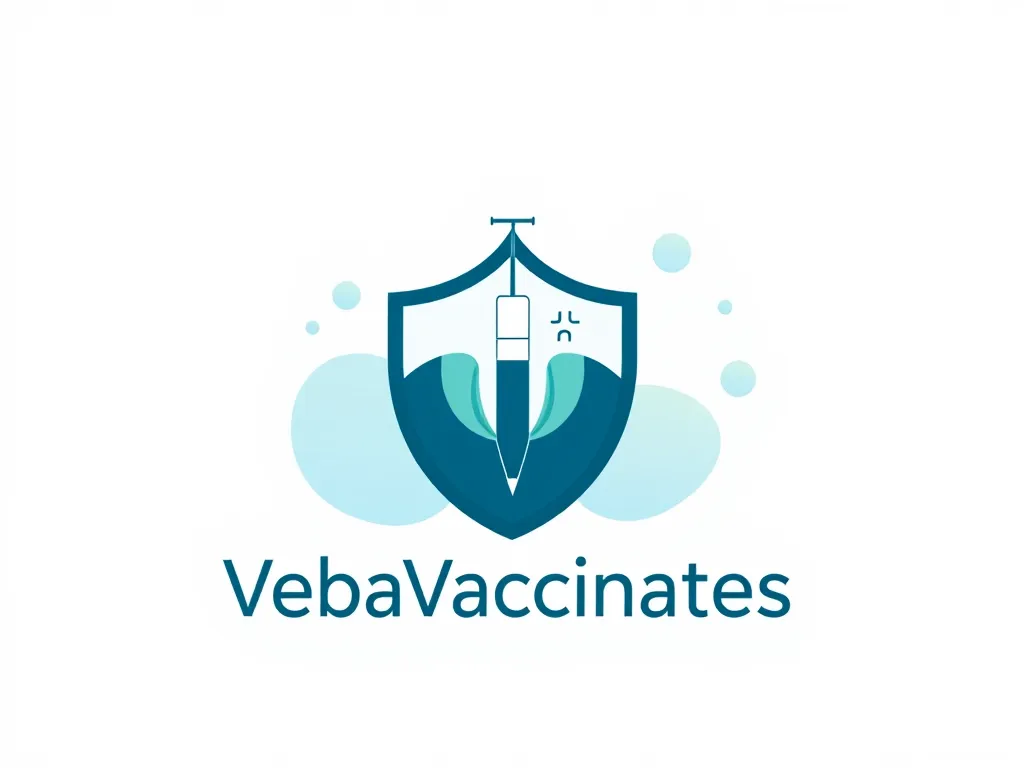Understanding The Role of Vaccinations in Public Health

The Role of Vaccinations in Public Health
The Role of Vaccinations in Public Health is paramount as vaccines have significantly reduced the prevalence of many infectious diseases, thus saving millions of lives globally. Vaccinations work by preparing the body's immune system to recognize and combat pathogens without causing the disease. This proactive approach not only protects individuals but also contributes to community health by creating herd immunity, which can eliminate outbreaks and protect those who are unable to be vaccinated due to medical reasons.
Historically, vaccinations have played a critical role in controlling epidemics. Before the development of vaccines, diseases like smallpox, polio, and measles would devastate communities. The Role of Vaccinations in Public Health can be observed through significant milestones such as the eradication of smallpox in 1980, thanks to global immunization efforts. This remarkable achievement highlights how targeted vaccination strategies can lead to the complete eradication of a disease that once claimed countless lives.
Understanding the implications of social determinants is crucial for effective strategies in Public Health.
Vaccinations not only enhance individual health but are also a key component of public health strategy. The Role of Vaccinations in Public Health extends to economic impacts as well, by reducing healthcare costs associated with treating preventable diseases and allowing populations to remain productive and engaged in their communities. Vaccination programs can lead to significant savings in healthcare budgets, thereby benefiting economies as a whole.
In addition to the direct health benefits, vaccinations strengthen public health infrastructures by increasing the resilience of populations against infectious disease outbreaks. The Role of Vaccinations in Public Health is also evident in the collaborative efforts among governments, healthcare providers, and organizations to promote vaccination as a fundamental human right. These collective endeavors aim to ensure equitable access to vaccines for all populations, regardless of socioeconomic status.
As we navigate new challenges such as emerging infectious diseases and anti-vaccine sentiments, the Role of Vaccinations in Public Health remains critical. Continued education about the science of vaccines, ongoing research and innovation, and effective public health messaging will be essential to combat misinformation and encourage vaccination uptake in communities worldwide.
Vaccination History and Milestones
Key milestones in the development of vaccines include the first successful smallpox vaccination by Edward Jenner in 1796 and the introduction of vaccines for diseases like rabies and tetanus in the late 19th century. The 20th century saw the development of various vaccines that would later change the course of public health, such as the polio vaccine created by Jonas Salk in 1955 and the measles vaccine introduced in the 1960s. These advancements have laid the groundwork for modern immunization practices.
Historical pandemics such as the 1918 influenza pandemic revealed the urgent need for effective vaccination responses. Vaccination played a crucial role in managing outbreaks of viral infections and bacterial diseases, leading to the establishment of global vaccination campaigns, especially in response to diseases like polio and measles. The global response to the COVID-19 pandemic further demonstrated the vital importance of rapid vaccine development and deployment in response to an emerging infectious threat.
The impact of vaccines on disease eradication is significant, particularly exemplified by the elimination of smallpox and the near-eradication of polio and rinderpest. Vaccination campaigns have vastly reduced the incidence rates of diseases worldwide and have proven that collective immunization efforts can change the tide of public health.
Types of Vaccinations
Vaccines can be classified into several types, including live attenuated and inactivated vaccines. Live attenuated vaccines contain weakened forms of the virus or bacteria, which often provide strong immunity with fewer doses. In contrast, inactivated vaccines contain killed pathogens, leading to a need for multiple doses for adequate immunity.
Subunit, recombinant, and conjugate vaccines represent another category that includes only specific pieces of the pathogen, rather than the whole germ, which reduces the risk of side effects while still eliciting an immune response. Each of these types of vaccines serves a unique purpose in the landscape of immunization, catering to different diseases and populations.
mRNA vaccines have gained prominence in modern health, particularly during the COVID-19 pandemic. These vaccines use a piece of the pathogen’s genetic material to stimulate an immune response, enabling faster development and adaptability to emerging variants. The success of mRNA technology may influence future vaccine research, paving the way for rapid responses to novel pathogens.
Public Health Campaigns
Successful vaccination campaigns around the world highlight the effectiveness of organized public health initiatives, such as the Global Polio Eradication Initiative, which has reduced polio by over 99% since its inception. Countries like Australia and the UK have also achieved high immunization rates through robust public health programs and outreach.
Strategies for increasing vaccination uptake involve community engagement, education, and addressing barriers to access. Public health campaigns that focus on the benefits of vaccination and dispel common myths can improve vaccine confidence and encourage individuals to participate in immunization programs.
The role of media in vaccination awareness has been crucial. Traditional media, social media, and community outreach programs have facilitated discussions about the importance of vaccines, their safety, and efficacy. By fostering positive narratives surrounding vaccinations, media can help counteract misinformation and promote public health goals.
Challenges in Vaccination
Vaccine hesitancy and misinformation pose significant challenges to public health efforts. Communities sometimes exhibit skepticism towards vaccines due to misinformation or historical injustices in healthcare. Addressing these issues through transparent communication and educational initiatives is essential to regain trust in vaccination programs.
Access and equity in vaccination efforts are critical challenges, especially in low-resource settings. Ensuring that all individuals, regardless of economic or geographic barriers, receive vaccines requires comprehensive planning and investment in healthcare infrastructure. Equitable access is vital for achieving herd immunity and protecting vulnerable populations.
Global vaccine distribution issues have been highlighted during the COVID-19 pandemic, where disparities in vaccine access surfaced between high- and low-income countries. Advocating for fair vaccine distribution and addressing logistical challenges are imperative for global health security and for future pandemic preparedness.
Future of Vaccinations
Innovations in vaccine technology include the development of nanoparticle-based vaccines and vaccine platforms that use viral vectors to deliver antigens effectively. These advancements have the potential to enhance vaccine efficacy and broaden the scope of immunization strategies.
Potential vaccines for emerging diseases like Zika, dengue fever, and other viral infections are in various stages of research and development. Ongoing investment in vaccine research will be crucial for rapid response capabilities as new health threats arise.
The role of vaccines in pandemic preparedness cannot be overstated. Ongoing surveillance, research, and readiness to deploy vaccines swiftly can help mitigate the impact of future outbreaks. The lessons learned from past vaccination efforts will guide public health strategies to ensure a resilient global response to infectious diseases.
